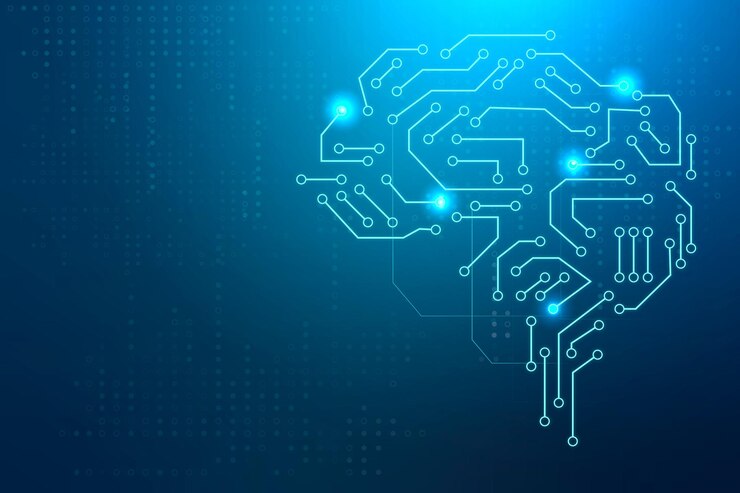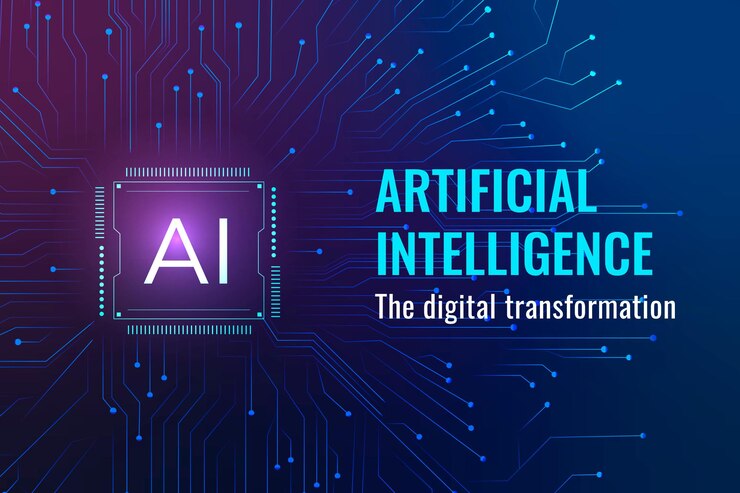Artificial Intelligence (AI) has rapidly evolved from a futuristic concept to an integral part of our daily lives. Its presence is felt in numerous ways, from virtual assistants that help manage our schedules to smart home devices that optimize our living environments. This blog post explores the myriad ways AI is being integrated into everyday activities, enhancing convenience, efficiency, and overall quality of life.

Virtual Assistants: Your Personal AI Companion
One of the most noticeable integrations of AI in daily life is through virtual assistants like Amazon’s Alexa, Apple’s Siri, Google Assistant, and Microsoft’s Cortana. These AI-powered tools have transformed how we interact with technology. Here are some ways virtual assistants are making life easier:
- Voice Commands: Virtual assistants allow users to perform tasks using voice commands. From setting alarms and reminders to playing music and controlling smart devices, voice-activated assistance has become a staple in many households.
- Information Access: Need to check the weather, get traffic updates, or find answers to general knowledge questions? Virtual assistants can provide instant information, making it convenient to stay informed.
- Task Automation: These AI companions can automate routine tasks, such as sending messages, making calls, and managing calendars. This automation saves time and ensures that important tasks are not overlooked.
Smart Home Devices: Creating Intelligent Living Spaces
AI’s integration into smart home devices is revolutionizing how we manage our living spaces. Here are some key areas where AI is making homes smarter:
- Smart Thermostats: Devices like the Nest Learning Thermostat use AI to learn your temperature preferences and schedule, adjusting settings automatically to optimize comfort and energy efficiency.
- Smart Lighting: AI-powered lighting systems, such as Philips Hue, allow you to control lights via voice commands or smartphone apps. These systems can also adapt to your routines and adjust lighting based on time of day or occupancy.
- Home Security: AI enhances home security systems through smart cameras and doorbells like Ring and Nest Cam. These devices use AI to detect unusual activity, recognize familiar faces, and send real-time alerts to homeowners.
- Smart Appliances: AI is being integrated into everyday appliances, making them more efficient and user-friendly. For example, smart refrigerators can track food inventory, suggest recipes, and even place grocery orders automatically.
AI in Healthcare: Enhancing Wellness and Medical Care
AI is making significant strides in healthcare, improving patient care and streamlining medical processes. Here’s how AI is being utilized:
- Wearable Health Devices: AI-powered wearables like Fitbit and Apple Watch monitor vital signs, track physical activity, and provide insights into health trends. These devices help users maintain a healthy lifestyle and alert them to potential health issues.
- Virtual Health Assistants: AI chatbots and virtual health assistants provide medical advice, answer health-related questions, and assist in managing chronic conditions. This technology offers accessible healthcare support, especially in remote areas.
- Diagnostic Tools: AI algorithms are being used to analyze medical images, predict disease outbreaks, and assist in diagnosing conditions with greater accuracy and speed than traditional methods.
AI in Transportation: Driving Towards a Smarter Future
The transportation sector is also benefiting from AI advancements, making travel safer and more efficient. Key examples include:
- Autonomous Vehicles: Companies like Tesla, Waymo, and Uber are developing self-driving cars that use AI to navigate roads, recognize traffic signals, and avoid obstacles. These vehicles have the potential to reduce accidents and improve traffic flow.
- Traffic Management: AI systems are being implemented in cities to manage traffic signals, reduce congestion, and improve public transportation efficiency. These systems analyze real-time traffic data to optimize traffic patterns.
- Ride-Sharing Services: AI algorithms power ride-sharing platforms like Uber and Lyft, matching riders with drivers, determining optimal routes, and calculating fares dynamically based on demand.
AI in Entertainment: Personalized Experiences
The entertainment industry is leveraging AI to offer personalized content and enhance user experiences. Here’s how:
- Streaming Services: Platforms like Netflix, Spotify, and YouTube use AI algorithms to recommend content based on user preferences and viewing habits. These recommendations create a more personalized and engaging user experience.
- Gaming: AI is revolutionizing gaming by creating more realistic environments, smarter non-player characters (NPCs), and personalized gaming experiences. AI-driven analytics also help game developers understand player behavior and improve game design.
- Content Creation: AI tools are being used to create music, art, and even write stories. These tools assist creators by generating ideas, composing melodies, and editing content, pushing the boundaries of creativity.
The rise of artificial intelligence in everyday life is transforming how we live, work, and interact with the world around us. From virtual assistants and smart home devices to healthcare innovations and entertainment, AI is enhancing convenience, efficiency, and personalization. As AI technology continues to advance, its integration into our daily routines will only deepen, promising a future where intelligent systems make our lives easier, safer, and more enjoyable. Embracing these advancements while addressing ethical and privacy concerns will be key to realizing the full potential of AI in our everyday lives.
Learn more –THE RISE OF ARTIFICIAL INTELLIGENCE IN EVERYDAY LIFE
For HomeDecor Visit – Canvaswala || For Business Visit- Fixcave





 Essential Steps for Easily Obtaining a Passport
Essential Steps for Easily Obtaining a Passport  Boost Your COMPUTER Performance with These Simple and Practical Solutions
Boost Your COMPUTER Performance with These Simple and Practical Solutions  Top 5 Destinations for Family VACATIONS IN 2024
Top 5 Destinations for Family VACATIONS IN 2024
Leave a Reply